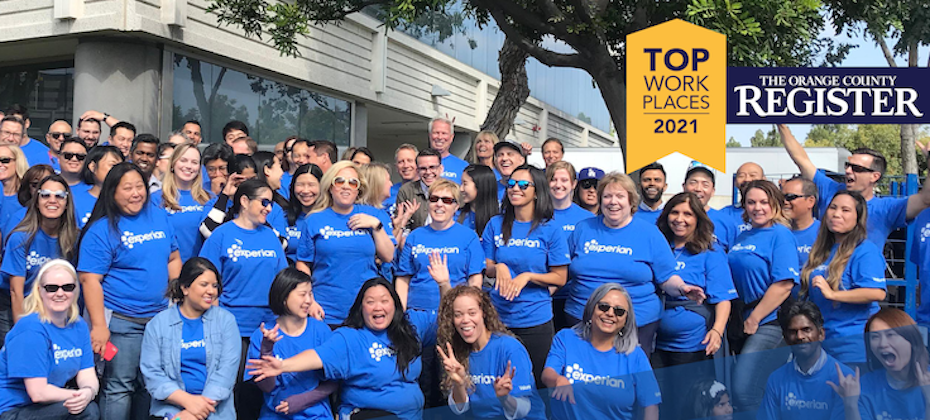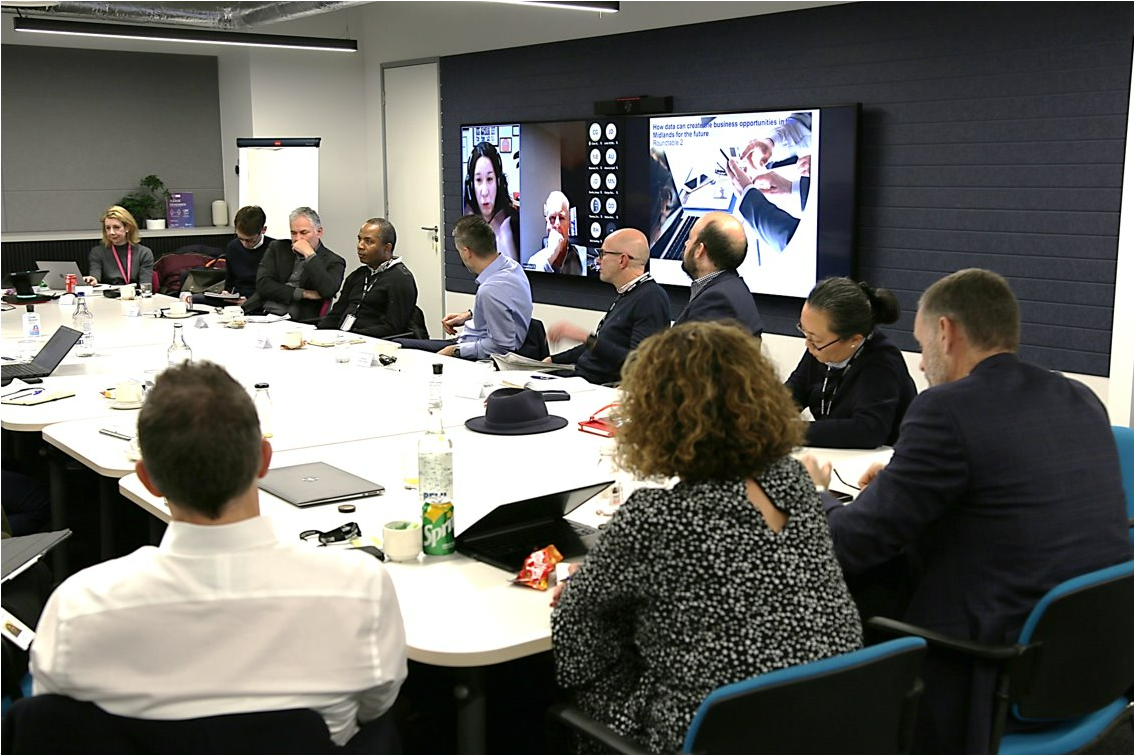World
News about Experian from all over the globe:

In 2021, Experian announced that United for Financial Health programme would be launching in two EMEA markets - Italy and South Africa. Today we are pleased to bring you more news of our plans in South Africa. Our partnership with the National Small Business Chamber is focused on supporting Small and Medium-sized Enterprises (SMEs) to improve their financial fitness. As a result of the pandemic, many small businesses are under enormous strain in the current environment. As the backbone of the South African economy, any challenges faced among these enterprises may have far-reaching implications on the number of unemployed people. Our campaign with the NSBC aims to support SMEs to stay in business and become more resilient to economic disruptions as they continue to be a driving force of inclusive economic growth and job creation in the country. Many SMEs are harming their chances of gaining access to credit, getting better deals from suppliers, and securing additional funding to help grow their business due to a lack of awareness and understanding of their business credit profile. Working alongside the NSBC, we aim to educate, encourage and assist SMEs to become creditworthy. The programme aims to provide tangible ways to help improve financial health, help SMEs overcome the financial difficulties that have resulted from the effects of the pandemic and kick-start people on the road to recovery. Mike Anderson, the CEO of our partners the NSBC, said: “We are extremely excited to launch a ‘How to become financially fit’ campaign in partnership with Experian South Africa, one of the leading credit bureaus, where we can equip SMEs with key tips and strategies to assist them in understanding their financial and credit health. The aim is to empower them to understand the impact of both their personal and business credit profiles on their business’s reputation and ultimately their ability to access the funding required to maintain and grow their businesses.” As part of this financial education drive, we’ll support a series of webinars hosted by the NSBC, with topics ranging from how to improve both your personal and business credit profiles, managing your cash flow, understanding what credit providers are looking for as well as protecting your own business from credit risk. The webinars are open to all NSBC members and will kick off on 28 January 2022 and run until the end of March. For more information on the ‘How to get financially fit’ NSBC campaign in partnership with Experian South Africa visit www.nsbc.africa.

For the past several years, we’ve been on a journey to improve financial access for millions of people around the world. We’ve made it our job to help consumers get the best financial outcomes. This focus on consumers defines us and informs everything we do. In 2019, we reshaped how consumers access credit with Experian Boost™. Since then, nearly 9 million consumers have connected to the product. While we are proud of what we have and continue to accomplish with Experian Boost, we know there is more to be done to ensure more consumers can access fair and affordable credit. Improving outcomes for underserved consumers When credit is used responsibly, it can create new opportunities from getting a college degree, buying a car or home and starting or expanding a business. These are milestones that help people establish careers, build wealth and ultimately achieve greater financial freedom. Yet, there are millions of consumers who are unable to participate in the mainstream financial ecosystem today because they don’t have a financial identity. In fact, our recent research shows there are at least 28 million credit invisibles in the U.S. with an additional 21 million consumers who are unscoreable by the credit score models most used by lenders today. Without an established credit history, these consumers struggle to qualify for everything from an auto loan to a mortgage and even an apartment or employment. This problem more frequently impacts communities of color with 28 percent of all Black and 26 percent of all Hispanic consumers currently unscoreable or credit invisible. Increasing financial inclusion depends on creating opportunities for underrepresented consumers to succeed. And this starts with ensuring all consumers have a financial identity. Bringing financial power to all with Experian Go The challenge is many consumers who are not in the credit ecosystem today are unsure where to start. Today, we reached a pivotal and exciting milestone in our commitment to consumers with the launch of Experian Go™. This new program opens the front door to the financial ecosystem for millions of consumers by helping them establish their financial identity and move from credit invisible to scoreable. Within minutes, credit invisibles can have an authenticated Experian credit report, tradelines and a credit history by using Experian Boost™[1], and instant access to financial offers through Experian Go. In fact, early analysis shows 91 percent of consumers with no credit history who connect to Experian Boost, a free feature that allows users to contribute their on-time cell phone, video streaming service, internet, and utility payments directly to their Experian credit report, can become scoreable in minutes with an average starting near-prime FICO® Score of 665[2]. Throughout the experience, we’ll provide ongoing credit education and access to tools like Experian Boost™ to make it easy for consumers to learn how to use and responsibly grow their credit histories. Until now, our industry has struggled to verify the identity of credit invisibles. Over the last several years, we’ve introduced new identity verification technologies to our toolbox. With Experian Go, we’re leveraging these technologies to verify a credit invisible’s identity and get them in the front door to start building credit. No other credit bureau or organization is doing this today. During our pilot, we helped more than 15,000 consumers establish their credit history. This is a great start. Now that Experian Go has launched, I look forward to helping millions more consumers get the credit they deserve. To learn more about Experian Go, visit www.experian.com/go. [1] Results may vary. Some may not see improved scores or approval odds. Not all lenders use Experian credit files, and not all lenders use scores impacted by Experian Boost. [2] Experian analysis based on an anonymized and statistically relevant sample of consumer credit reports with only Experian Boost tradelines included and FICO® Scores. December 2021.

I’m delighted to announce that Experian has been named as a Top Employer across five countries. Our teams in the UK, Germany, Brazil, Singapore and Australia were all recognised in the 2022 awards which is a fantastic achievement. At Experian we pride ourselves on having a great People First culture, it’s something we are all proud of and want to protect. We do this by supporting a dynamic, positive and inclusive working environment for our employees wherever they are in the world. Our people are passionate about the work that we do, using data, analytics and technology to help transform lives and create a better tomorrow for people and organisations. We see our people live that purpose everyday in their work and it is wonderful to see that pride, about the role we play - supporting clients, consumers economies and society – getting recognised once again.

The past few years have sparked a swift digital transformation that subsequently drove a rapid increase in fraud. In fact, fraudsters have gotten more creative, putting businesses and consumers at risk now more than ever. At Experian, we predict that more intricate challenges lie ahead and are dedicated to helping businesses combat fraud threats. Here’s what we expect in 2022: 1. Buy Now, Pay Never – The Buy Now, Pay Later (BNPL) space has grown massively recently. In fact, the number of BNPL users in the US has grown by more than 300 percent per year since 2018, reaching 45 million active users in 2021 who are spending more than $20.8 billion . Without the right identity verification and fraud mitigation tools in place, fraudsters will take advantage of some BNPL companies and consumers in 2022. Experian predicts BNPL lenders will see an uptick in two types of fraud: identity theft and synthetic identity fraud, when a fraudster uses a combination of real and fake information to create an entirely new identity. This could result in significant losses for BNPL lenders. 2. Beware of Cryptocurrency Scams – Digital currencies, such as cryptocurrency, have become more conventional and scammers have caught on quickly. According to the FTC, investment cryptocurrency scam reports have skyrocketed, with nearly 7,000 people reporting losses totaling more than $80 million from October 2020 to March 2021 . In 2022, Experian predicts that fraudsters will set up cryptocurrency accounts to extract, store and funnel stolen funds, such as the billions of stimulus dollars that were swindled by fraudsters. 3. Double the Trouble for Ransomware Attacks – In the first six months of 2021, there was $590 million in ransomware-related activity, which exceeds the value of $416 million reported for the entirety of 2020 according to the U.S. Treasury's Financial Crimes Enforcement Network . Experian predicts that ransomware will be a significant fraud threat for companies in 2022 as fraudsters will look to not only ask for a hefty ransom to gain back control, but criminals will also steal data from the hacked company. This will not only result in companies losing sales because of the halt caused by the ransom attack, but it will also enable fraudsters to gain access and monetize stolen data such as employees’ personal information, HR records and more – leaving the company’s employees vulnerable to personal fraudulent attacks. 4. Love, Actually? – Because more consumers went on dating apps and social media to look for love during the pandemic, fraudsters saw an opportunity to create intimate, trusted relationships without the immediate need to meet in-person. The FBI found that from January 1, 2021 — July 31, 2021, the FBI Internet Crime Complaint Center received over 1,800 complaints, related to online romance scams, resulting in losses of approximately $133 million. Experian predicts that romance scams will continue to see an uptick as fraudsters take advantage of these relationships to ask for money or a “loan” to cover anything from travel costs to medical expenses. 5. Digital Elder Abuse Will Rise – According to Experian’s latest Global Insights Report, there has been a 25 percent increase in online activity since the start of Covid-19 as many, including the elderly, went online for everything from groceries to scheduling health care visits. This onslaught of digital newbies presents a new audience for fraudsters to attack. Experian predicts that consumers will get hit hard by fraudsters through social engineering (when a fraudster manipulates a person to divulge confidential or private information) and account takeover fraud (when a fraudster steals a username and password from one site to takeover other accounts). This could result in billions of dollars of losses in 2022. As a leader in fraud prevention and identity verification, Experian offers a full suite of automated tools that harness data and analytics to prevent fraud and mitigate losses. Learn more about Experian's fraud management tools.

For the ninth year, the Orange County Register has named Experian North America as a Top Workplace, securing the #1 ranking for the second consecutive year. The award, which is based on employee feedback in a survey of hundreds of leading companies in Orange County, recognizes our company’s culture of inclusion, and our commitment to employees and communities. Orange County is the home of our North America operations, and we are especially honored to be recognized again for our inclusive work environment and achieving higher performance while giving back. This honor demonstrates the talent and compassion of all the people who work at Experian. Thank You All our decisions are driven by our desire to ensure our employees feel valued and protected. As part of this, we issued a ‘Thank You’ Share Award to all employees at the beginning of this year to recognize perseverance through the pandemic, giving thousands of employees an equity stake in the company. Coming Together Our Employee Resource Groups (ERGs) continue to grow and support employees in different ways, which include activities that bring employees together internally to serve their communities externally. For example, our Asian American ERG worked closely with Pan-Asian leadership organization Ascend to support the Asian American community and employees, considering increasing discrimination and xenophobia during the pandemic. Together they kicked off Feed Your Hospital, which facilitated the delivery of meals to frontline COVID-19 healthcare workers by supporting local Asian restaurants. Meals were purchased at the restaurants and delivered to participating hospitals. The campaign raised funds for hospitals in Orange County. Social Good This year, we also awarded two OC-based organizations with major grants – the OC Hispanic Chamber of Commerce and TGR Foundation (a Tiger Woods Charity). For the OC Hispanic Chamber of Commerce, we funded and facilitated credit education initiatives for the Youth Chamber Program – funds went towards scholarship awards and event costs. We also added credit education to the ‘Pre-Venture Business Program’ curriculum – with funds going into marketing, training, one-on-one consulting, and event costs offered in both Spanish and English. For the TGR Foundation grant, we are working on ongoing projects with the foundation to support credit education, small business entrepreneurship, homeownership, and financial inclusion efforts. In total, employees volunteered more than 900 hours to Orange County-based nonprofits and Experian matched funds to those organizations that employees volunteered with and donated to. Our employees continue to help people who are facing unprecedented and unforeseen challenges. Different groups and employees of all levels are working together to help our clients, customers and communities persevere. We are honored that the Orange County Register continues to recognize our tireless efforts to make a difference in the communities in which we live and work.

Over the past year at Experian, we’ve continued to facilitate innovation in the fintech space – leveraging our expertise and history of helping financial institutions and individuals address a wide range of challenges. We’re thrilled to be recognized for the impact of this important work, being named a global fintech leader in the Center for Financial Professionals (CeFPro) Fintech Leaders 2022 report. One of the most comprehensive international research and ranking programs on the status of fintech in financial services, CeFPro ranks Experian among the report’s top companies within the Fraud Prevention and Credit Risk categories, and in the top 15 Overall Ecosystem Rankings. This recognition showcases the value of fraud and identity management services amid the rise of digital channels, and critical importance of continuing to develop strategies to mitigate risk. At Experian we have a deep history in pioneering tools and services that prioritize improving financial health for all. Through the ongoing development of our core products and continued innovations, we believe improving financial health is how we can make a difference for institutions and individuals alike. Our core products harness the expertise of our people and are examples to others in the industry who look to advance innovation in the fintech space and beyond. We continue to invest in new technology and infrastructure to deliver fresh insights and transform the way businesses and consumers operate. For more than 125 years, we’ve helped consumers and clients prosper. Recognition by the CeFPro report is particularly meaningful to us. The study garners their rankings from the very individuals and institutions that engage with Experian – drawing on market analysis and original research that is also backed by an advisory board composed of 60 international industry professionals. We’re honored and inspired – and look forward to continuing to push the envelope in the fintech space and beyond.

The United Nations identifies removing poverty as one of its 17 Sustainable Development Goals. There’s a reason it’s number one on their list: Access to affordable financial services opens the door to opportunities for people to transform their lives – from homes and healthcare to education and entrepreneurship.. At Experian, our focus is on increasing access to financial services, improving financial literacy and building consumer confidence; we help people take control of their financial health. We are using the power of data innovation to transform lives and help businesses grow, improving financial health for people around the world. We created a dedicated Social Innovation Programme to fund, build and recognize products that will have a positive impact on the financial health of consumers. Between 2013 and April 2021 we have invested over US$8m across 29 product ideas. Eighteen of those products have launched, reaching 61 million people, many of whom are from financially vulnerable backgrounds. In June, we opened applications for our latest round of annual Social Innovation funding and asked teams to come up with new innovative products that positively impact the financial health of our consumers and use data for good. Of these, seven projects were shortlisted and presented to our Social Innovation Committee, which I am privileged enough to chair. It was a tough decision, but we chose three truly diverse projects to receive this year’s Social Innovation funding and we are really excited about what they could achieve. These projects will give millions of people in India access to a more positive loan decision, allow citizens in the UK to manage their vulnerability data across multiple organisations, and help farmers in Brazil to access the credit they need to keep their businesses going. Between them, these three projects alone have the potential to reach over 85 million people in the next five years, which is a truly exciting prospect. We are proud to celebrate our culture of purpose-led innovation. Our social innovation products have reached 61 million people since 2013 and we aim to reach 100 million by 2025. Read more about how we are helping to create a better tomorrow.

Last week, Experian’s Nottingham office hosted the National Data Strategy Forum as it kicked off its series of regional events showcasing the power of data. The day brought together a wide range of stakeholders, including National Numeracy, the National Literacy Trust and the University of Nottingham, alongside representatives from the Department of Culture, Media & Sport, to talk about the ways data can benefit Midlands business, societies and communities. From financial inclusion, digital literacy, and the role of data in protecting the most vulnerable in our society, to the ways data can create business opportunities for the future, and how we can work together to support grassroots innovation across the region, the discussion focused on how Government and industry can work together to accelerate regional success. This is an early and important step in helping realise the potential of data to create a better tomorrow for people in the Midlands and across the UK. We look forward to continuing to engage with the NDS Forum to bring that potential to life.

It’s hard to believe that Christmas is just around the corner. Many of us will be starting to think about (or if you’re very organised, have already finished) their Christmas shopping. Black Friday sales will kick-off this week’s online bonanza, as bargain hunters pursue the best deals online. However, while we are all busy getting into the spirit of things, it has never been more vital that we do what we can to protect ourselves from identity fraud. As the popularity of the Black Friday sales season has grown, we’ve also seen a marked increase in the volume of fraudulent activity, as criminals use stolen or illegally obtained personal details to apply for credit in someone else’s name. According to our latest analysis of National Hunter Fraud Prevention Service data, the fraud rate for credit card applications has increased by 43% in the last three months to 69 confirmed fraudulent applications per 10,000 applications. It’s expected the rate will rise even more in December, as criminals look to take advantage. It’s naturally worrying if you are a victim of ID fraud. The fraudster will likely have tried to obtain credit in your name – perhaps on multiple occasions – and you’ll be concerned about how and from where they got hold of your information in the first place. Fortunately, there’s a host of things you can do to protect yourself. Checking your credit report on a regular basis is one of the best ways to spot if fraudsters have used your personal information to attempt to access credit, and our dedicated teams can help guide you through the steps if the worst happens and your identity has been stolen. New services and solutions are also helping companies identify and prevent more fraud. In part, the rise in rates can be attributed to better detection, helping fraud teams focus their energy on fraudulent applications, rather than genuine ones. So, while you’re browsing for gifts this festive season, make sure you are mindful of those looking to spoil your Christmas spirit. Help is available and you can read more on how to guard yourself against identity fraud on our website.